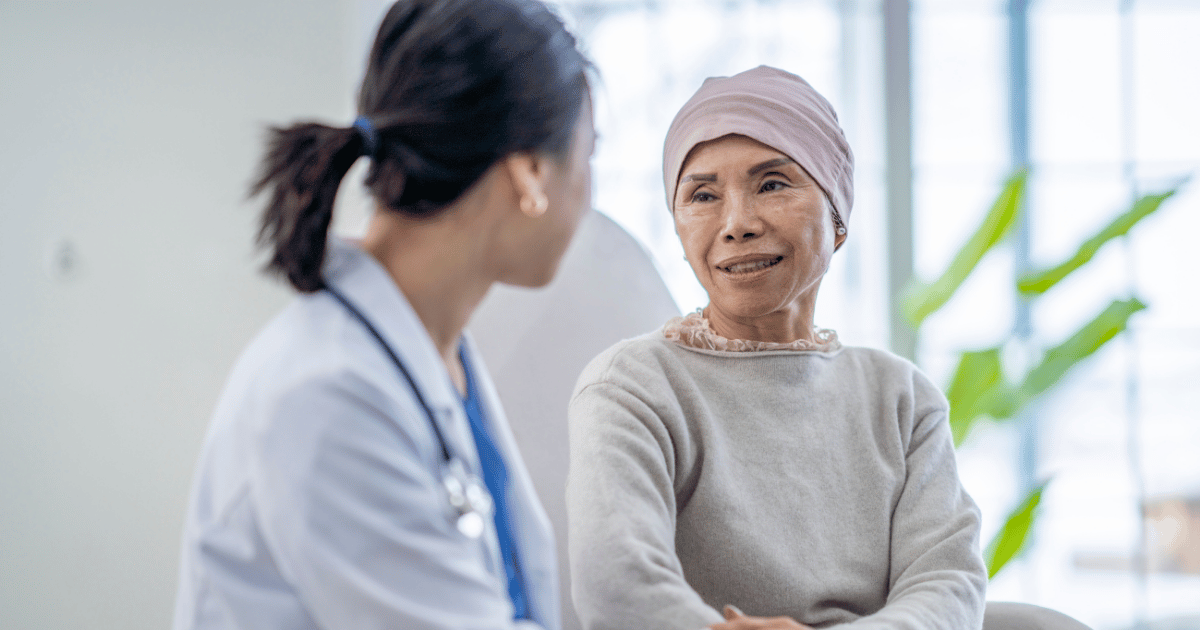

- Articles
All You Need To Know About CANCER!
- July 22, 2024
- By admin
Cancer is a group of diseases involving abnormal cell growth with the ability to invade or spread to other parts of the body, caused by genetic damage of cells. In the event of inability of human body to repair such damage, or failure of our defence mechanism to initiate programmed cell death (Apoptosis), mutated cells continue multiplying uncontrollably and become malignant tumour, commonly known as cancer. There is a great diversity of signs and symptoms of cancer depending on its origin. Common signs and symptoms include hard, irregular painless lump, unexplained weight loss, abnormal bleeding, unexplained fever, malaise, etc. Most cancers are painless at the early stages but the disease can induce pain when causing nerve compression. It can also cause pain when the cancer is spread to the bones or is at the advanced stages.
In Malaysia, the top 5 common cancers for both genders are breast, colorectal, lung, nasopharyngeal and liver cancer. The main environmental factors contributing to the development of cancers include cigarette smoking, sedentary lifestyle, obesity, physical inactivity, exposure to pollutants, consumption of large amount of processed food and red meat, UV light overexposure and certain infectious diseases, whereas genetic or hereditary factors are responsible for less than 10% of cancer cases. Nevertheless, the cause of cancer is usually multifactorial.
Early detection of cancer through screening is crucial since most cancers have much better prognosis if treated at early stages. Although diagnostic tests are available for most cancers, however not all cancers are able to be screened at present. Screening targets certain cancers e.g. cervical cancer (Pap smear or liquid cytology) and colorectal cancer (faecal occult blood or endoscopy). The benefits of screening of breast cancer are controversial. Routine screening of other cancers through blood tests (tumour markers), medical imaging such as X-ray, CT scan, ultrasound, etc. in low risk group or general population is not generally recommended, due to its low cost effectiveness and lack of high specificity and sensitivity. Mass screening for such purposes may lead to wastage of medical resources and create unwanted anxiety and burden to the public.
Successful cancer treatment involves designing the most effective treatment approach that can be personalised in accordance to patient’s needs, including but not limited to:
- Surgery (if complete removal of the solid tumour is feasible at early stage of cancer)
- Chemotherapy
- Radiotherapy (certain cancers are susceptible to chemotherapeutic agents or radiotherapy)
- Immunotherapy
- Targeted cell therapy
- Hormonal therapy is useful for advanced breast and prostate cancer.
Quitting smoking is strongly recommended if the cancer patient is a smoker. Regular exercise or physical training is also encouraged. Patients are advised to maintain a well-balanced diet while the consumption of red meat, highly processed food and alcohol are discouraged. Positive thinking, determination and support from family and peers are vital in the fight to survive cancer.
Diet plays a vital role in the management and prevention of cancer. A well-balanced diet rich in antioxidants flavonoids, fibre, polysaccharides, micronutrients and macronutrients associated with grains, mushrooms, vegetables and fruits positively affects overall health outcomes. Dietary and physical intervention coupled with certain natural medicinal mushrooms would potentially have the patient experience less complications from the disease and the treatments. However, this has to be monitored under the supervision of experienced healthcare providers.
Medicinal mushrooms have been shown to have cancer-preventive properties. Regular consumption over prolonged periods are known to reduce cancer incidence rates according to current evidence. The medicinal mushroom Agaricus blazei Murill (ABM) native to the Brazilian rainforest has been traditionally used as a health food source for the prevention of cancer, diabetes, hyperlipidemia, arteriosclerosis and chronic hepatitis. ABM started to gain global recognition when the Japanese researcher, Takatoshi Furumoto discovered it and sent the spores of ABM to Japan for cultivation & research. It has been reported that 100,000-300,000 kg of the dried body of A. blazei is produced every year in Japan, and they are consumed by 300,000-500,000 persons for the prevention of cancer and/or as an adjuvant with cancer chemotherapy after the removal of a malignant tumor), ABM is one of the most potent medicinal mushrooms discovered to date, packed with a plethora of phytonutrients (approximately 192 types), essential vitamins, antioxidants, and it is exceptionally rich with polysaccharides particularly the B-glucans 1,3/1,6.
ß-glucans 1,3/1,6 activate the immunity response and the production of mutation-fighting cells e.g. Natural Killer (NK) cells, Lymphocyte T-cells, Helper T-cells, interferon and interleukin, that strengthen and maintain a healthy immune system. In a human-based study, ABM has been shown to increase NK cell activities in cancer patients and fewer chemotherapy-associated side effects (such as lack of appetite, hair fall, general weakness) were reported in intervened group). As medicinal mushrooms tend to bio-accumulate heavy metals in the soils, it is important to choose an organic and reliable source, which should be tested free from heavy metals & harmful chemicals.
Written by
Dr Yap Chee Wei
MBBS (University of Malaya)
Mr. Melvin Chung (Nutritionist)
Bsc (Hons) Human Nutritional Sciences (Canada)
Related Posts



